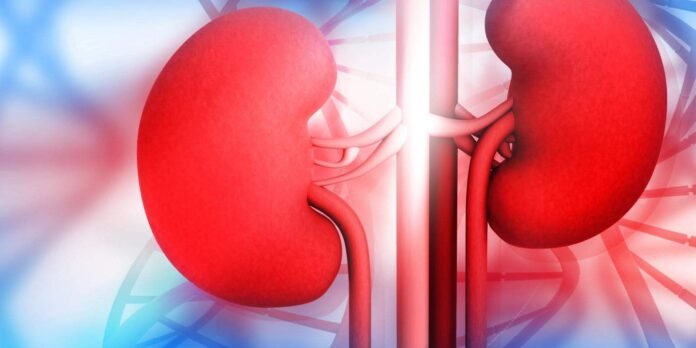Our bodies work in fascinating ways, revealing unexpected connections between different organs and systems. Recently, a new insight has come to light: most people with kidney disease do not die from kidney failure, but from heart disease. This revelation raises many questions about how the two are related. To better understand this connection, we turned to medical experts for their insights.
Dr. Puneet Bhuwania, a consultant nephrologist and transplant physician at Wockhardt Hospitals, explained that while the relationship between kidney and heart health has been long suspected, there may not be enough conclusive cases to establish a direct link. Still, it is widely believed that heart disease remains the leading cause of death for those with kidney disease, especially for patients undergoing dialysis. This suggests that the two conditions are intertwined in a way that affects the overall health of an individual.
The connection between kidney disease and heart disease begins with how kidney disease affects the body’s ability to filter blood. In healthy individuals, the kidneys work to remove waste and excess fluids, maintaining a balance that is essential for proper bodily function. However, in people with kidney disease, this filtration process is impaired. The kidneys are less efficient at removing waste, leading to a buildup of harmful substances in the bloodstream. This places additional stress on the heart, which must work harder to pump blood through a body that is struggling with increased toxins.
When this happens, the risk of developing cardiovascular complications rises significantly. Over time, the heart may become weaker, leading to conditions such as hypertension, heart attacks, and even strokes. According to Dr. Bhuwania, this additional burden on the heart can be particularly dangerous for patients with advanced kidney disease, as they are more vulnerable to these kinds of heart-related issues. The combination of weakened kidneys and an overworked heart creates a vicious cycle, where one condition exacerbates the other.
Moreover, patients undergoing dialysis—a common treatment for kidney failure—are particularly susceptible to heart disease. Dialysis, while necessary for removing waste products from the blood, cannot replicate the full function of healthy kidneys. It puts additional strain on the heart by altering the body’s fluid balance and impacting blood pressure. As a result, patients who rely on dialysis are at a much higher risk of developing cardiovascular complications compared to those whose kidneys are functioning normally.
Another factor contributing to the link between kidney disease and heart disease is inflammation. Chronic kidney disease often leads to increased inflammation in the body, which is known to play a role in the development of heart disease. As inflammation becomes more severe, it can damage blood vessels and contribute to the formation of plaques that narrow arteries. This further heightens the risk of heart attacks and other cardiovascular events.
Lifestyle factors also play a role in this connection. Many patients with kidney disease already face issues such as diabetes and high blood pressure, which are known to increase the risk of heart disease. Managing these conditions is crucial, but when coupled with impaired kidney function, the challenge becomes even greater. Patients must be diligent in monitoring their health, managing their blood sugar and blood pressure, and following a strict treatment regimen to avoid worsening either condition.
Preventative measures can help reduce the risk of heart disease for patients with kidney disease. Dr. Bhuwania emphasized the importance of early detection and proactive management of both kidney and heart health. Regular check-ups with healthcare providers, along with lifestyle changes such as a healthy diet, regular exercise, and medication adherence, are essential in maintaining overall health and preventing complications.
The link between kidney disease and heart disease becomes more concerning when we consider the progression of chronic kidney disease (CKD). As CKD advances, the kidneys’ ability to regulate electrolytes like potassium, sodium, and calcium deteriorates. This imbalance can disrupt the electrical activity of the heart, leading to arrhythmias, or irregular heartbeats. In severe cases, these arrhythmias can cause sudden cardiac arrest, which is a major contributor to the higher mortality rate in kidney patients.
Another aspect of this connection involves anemia, a condition common in people with kidney disease. When the kidneys are not functioning properly, they produce less erythropoietin, a hormone responsible for signaling the body to produce red blood cells. Fewer red blood cells mean less oxygen is delivered to the body’s tissues, including the heart. The heart compensates by working harder, which over time can lead to left ventricular hypertrophy—a condition where the heart’s left ventricle becomes enlarged and weak, increasing the risk of heart failure.
It’s also important to note that medications prescribed for managing kidney disease can have an impact on cardiovascular health. Diuretics, commonly used to help control blood pressure and reduce fluid retention in kidney patients, can sometimes lead to electrolyte imbalances that further strain the heart. Additionally, some blood pressure medications, while helpful for managing kidney disease, may also lower blood pressure too much, reducing blood flow to the heart and exacerbating cardiovascular problems.
Despite the challenges, there is hope for patients with both kidney and heart conditions. Medical advancements in both nephrology and cardiology have led to better treatments and improved outcomes. For instance, newer medications such as SGLT2 inhibitors, originally designed for diabetes management, have shown promise in reducing both kidney and heart complications. These drugs help control blood sugar levels while also providing protective benefits for the kidneys and heart, potentially lowering the risk of heart failure and slowing kidney disease progression.

